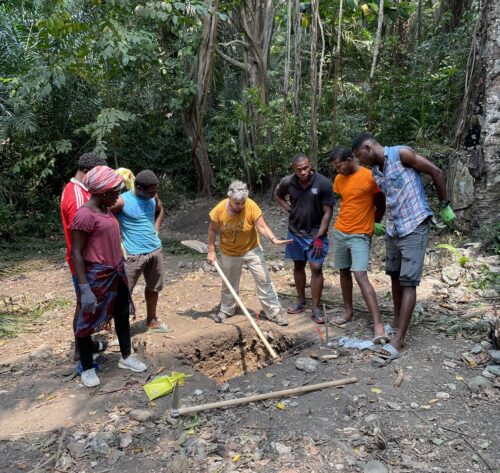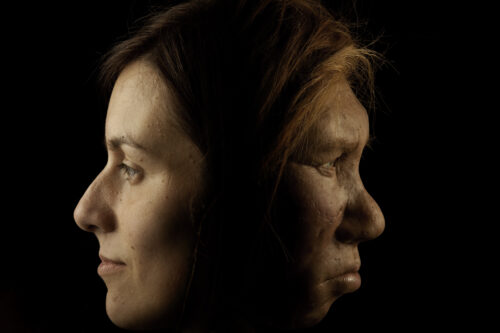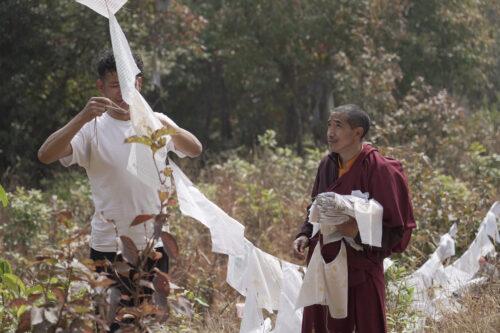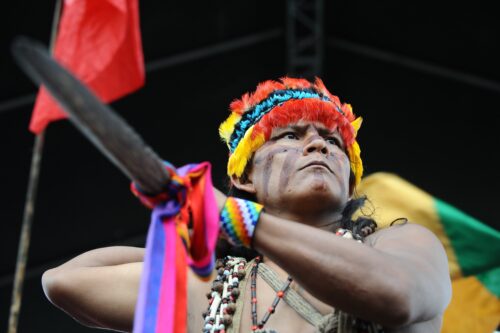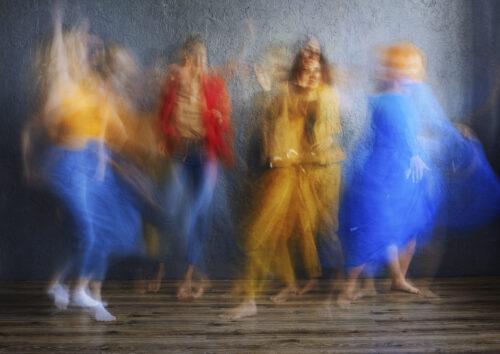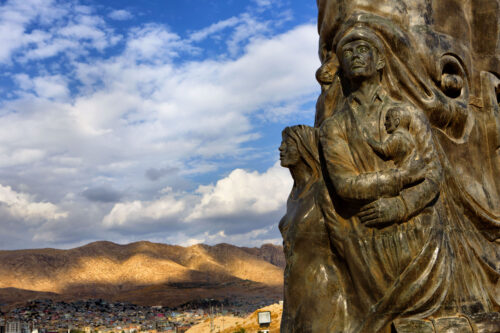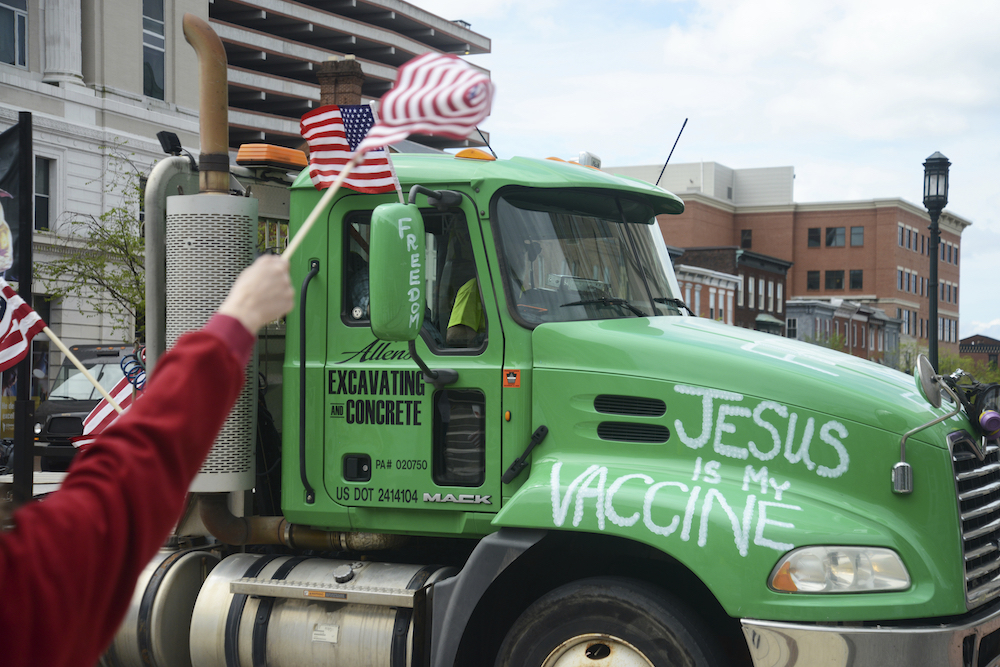COVID-19 and the Turn to Magical Thinking
The late 19th and early 20th centuries were a time of unprecedented shock and trauma for many Africans. European invaders appeared, armed with guns for which African spears were no match, and they killed or imprisoned those who got in their way, forced people into labor, and established colonial rule over new countries that they created de novo.
In one of a number of revolts against colonial rule, in a corner of what is now Tanzania, the Maji Maji Rebellion sought to drive out German colonialists. The rebels were partly incited by a spirit medium who claimed to be possessed by a snake spirit and to have a “war medicine” that would turn German bullets into water. In one of the saddest and most surreal episodes in anti-colonial history, thousands of Africans who put their faith in this magic perished before German machine guns.
It has been axiomatic in anthropology since Bronislaw Malinowski’s seminal work in the early 20th century that people turn to magic when they feel powerless. Soldiers, for example, may repeatedly practice mastery of their weapons, but they know there is still a strong element of chance in whether they live or die in combat, and so they also pray, wear talismans, and develop superstitions about weapons, clothes, or routines that bring luck. In this spirit, the Maji Maji rebels—outgunned but unwilling to tolerate German occupation—put their faith in magic water, as well as their own martial skills, as they rose up.
The turn to magic, however ineffective, can be harmless. But, as the rebels discovered, sometimes it lends a dangerous sense of false security. The sudden, devastating spread of the coronavirus, which makes every human interaction potentially lethal, has also made people around the world feel helpless and vulnerable. Our normal habits endanger us, and science offers scant protection. For many, the official prophylactic (locking ourselves in our homes) seems a recipe for financial self-destruction. In these circumstances, as anthropologists would predict, people around the world have turned to magic and conspiracy theories.
Rumors have spread in Sri Lanka that white (and only white) handkerchiefs protect people from COVID-19.
In the Philippines, volcanic ash is said to kill the virus.
In France, cocaine has been bestowed with the power to dispatch the virus. In parts of China, it is saltwater. In India, it is cow dung and urine.
In Iran, one cleric claimed that brushing one’s hair, eating onions, and putting violet flower oil onto one’s anus would keep the virus away. Meanwhile, over 700 Iranians have died from drinking methanol, which they believed would cure the virus.
Iranians are not alone in attributing miraculously curative powers to alcohol. President Alexander Lukashenko of Belarus (where COVID-19 is now spreading widely) has told his citizens that vodka and saunas will keep them safe from COVID-19.
It might be tempting for some to believe that contemporary Americans are immune to such magical thinking. After all, one might think: Americans have indoor plumbing, universities with medical schools and physics departments, and they invented the atomic bomb.
But, they are also human—all too human.
Sometimes magical thinking presents itself as explicitly magical, making reference to charms, spells, or miracles. But it often goes under disguise, miming the form of its seeming opposite by deploying the rhetoric of science.
President Donald Trump (whose campaign against the virus was described by a former White House aide as “like an 11-year-old boy waiting for the fairy godmother to bring him a magic pill”) has offered us examples of both. He was using Biblical idioms of magic when he said in February, before many cases had manifested in the U.S.: “It’s going to disappear. One day, it’s like a miracle, it will disappear.” Later, Trump co-opted the language of medical research when he touted the benefits of hydroxychloroquine (a drug that, preliminary studies suggest, actually increases the likelihood of death for COVID-19 patients): “It’s a powerful drug on malaria. And there are signs that it works on [coronavirus], some very strong signs. … We have some very good results and some very good tests.” Trump called hydroxychloroquine “one of the biggest game-changers in the history of medicine.”
Magical thinking often goes under disguise, miming the form of its seeming opposite by deploying the rhetoric of science.
Throughout the pandemic, there has been an abundance of both flavors of magical thinking: the explicitly magical and the pseudoscientific. Many evangelical preachers have drawn on the Christian repertoire of miracles. The televangelist Kenneth Copeland performed a televised exorcism, calling out at the virus: ”I blow the wind of God on you. You are destroyed forever, and you’ll never be back. Thank you, God.” Copeland also told his followers at home that they could be cured of COVID-19 by touching their TV screens.
The story of Bishop Gerald Glenn, founder and pastor of New Deliverance Evangelistic Church in Virginia, is more tragic. Glenn defied Virginia guidelines about in-person worship services, telling his congregation, “I firmly believe that God is larger than this dreaded virus,” and saying he would continue to preach “unless I’m in jail or in the hospital.” He later died of COVID-19. Four family members, including his wife, also contracted the virus.
A Pew Research Center poll found that 25 percent of Americans reported that COVID-19 had intensified their faith. Only 2 percent said the pandemic had weakened their faith.
Magical thinking of the pseudoscience variety has also been on full display. Although credentialed scientists have been very clear that there is currently no cure or vaccine for COVID-19, a number of companies and television personalities have fraudulently promoted esoteric knowledge that they say will protect those in the know. Actor Woody Harrelson has spread conspiracy theories connecting the coronavirus pandemic to 5G cellphone towers. The right-wing provocateur Alex Jones claimed that his SuperSilver Whitening Toothpaste “kills the whole SARS-corona family at point-blank range” until he was ordered to cease and desist by the U.S. Food and Drug Administration.
And Jennings Ryan Staley, a licensed physician and proprietor of a medical spa in California, was arrested for advertising “COVID-19 treatment packs” (priced at US$3,995 for four people) that he said would provide immunity and would “100 percent” cure the disease. He described his treatment packs as “a magic bullet.”
Americans have also turned to the magic of weaponry, in the form of guns and shows of military might. As far back as the magical weapons of ancient Greek and Norse gods, weapons have been seen, unconsciously at least, as a source of magical power for their owners. (This is why so many American weapons have mythological names: think the Trident, Poseidon, and Thor nuclear weapons, and the U.S. Navy’s anti-missile system, Aegis.)
Warplanes are powerful symbols of American military strength and solidarity: In the past weeks, several American cities have seen flyovers by the Navy’s Blue Angels and the Air Force’s Thunderbirds in an effort to honor health care workers and other essential front-line workers. The Department of Defense branded the series of flyovers as “America Strong.”
Many Americans also see guns, but especially assault weapons, in an almost mystical way, as essential guarantors of their way of life. So anti-lockdown protestors in Michigan, Wisconsin, and elsewhere have brandished assault weapons in ritualized displays of strength at state capitols. In practical terms, these weapons are useless against a virus. Mainstream media coverage of assault weapons at protests has often characterized the show of weapons as a way of threatening lawmakers. But that may not be the only reason to bring them out on display at this moment. These weapons have enormous talismanic power as magical objects that symbolize virility and strength in a situation where we feel helpless and vulnerable.
And what should we make of the protests? If we are looking for a contemporary analogue to Maji Maji rebels running, confident but undefended, into a hail of German bullets, surely it is to be found in the protestors—flaunting weapons but not wearing masks, and pressed shoulder to shoulder with hundreds of strangers, often in states where infections are on the rise. And yet the protestors evince an aura of invincibility.
It is a core precept of American civic ideology, especially on the political right, that individuals should be free to create their own destinies, with minimal government interference, and that those destinies are largely just. Referring to the ways Protestant theology and free market dogma have melded in dangerous forms of magical thinking, the Irish columnist Fintan O’Toole observes, “religious providentialism (God will protect the good folks) … is now very deeply infused in the mindset of the American right.”
This sense that bad things do not happen to deserving people is reinforced by the belief that the United States has its own providential destiny as the “exceptional nation.” Much has been made in the mainstream media of the shadowy network of business interests that have provided funding and organizational infrastructure for protests aimed at reopening the economy. Some liberal commentators have implied that the protestors are merely pawns of these hidden oligarchical interests, but most people do not risk their lives to make other people rich: These protestors clearly believe in what they’re doing. The protests bear witness to a belief that bad things will only happen to other—less deserving—people.
But the bitter truth is that, for all the wealth and technology the human race has accumulated, we are helpless before this tiny, invisible virus that is immune to our weaponry. Far from fulfilling our providential destiny, we are left playing coronavirus roulette.
If we are lucky, we are among those who will develop mild symptoms, or even no symptoms, rather than being killed by the virus. If we are lucky, we have jobs we can do from home. And if we are lucky, we live in countries—Iceland, Greece, Taiwan, New Zealand—with alert, competent leaders who acted swiftly to contain the virus and flatten the curve.
If we are less lucky, we live in countries with smug, indolent leaders who tell us that “it’s going to disappear. One day, it’s like a miracle, it will disappear.” For some, magic may seem our best hope.








